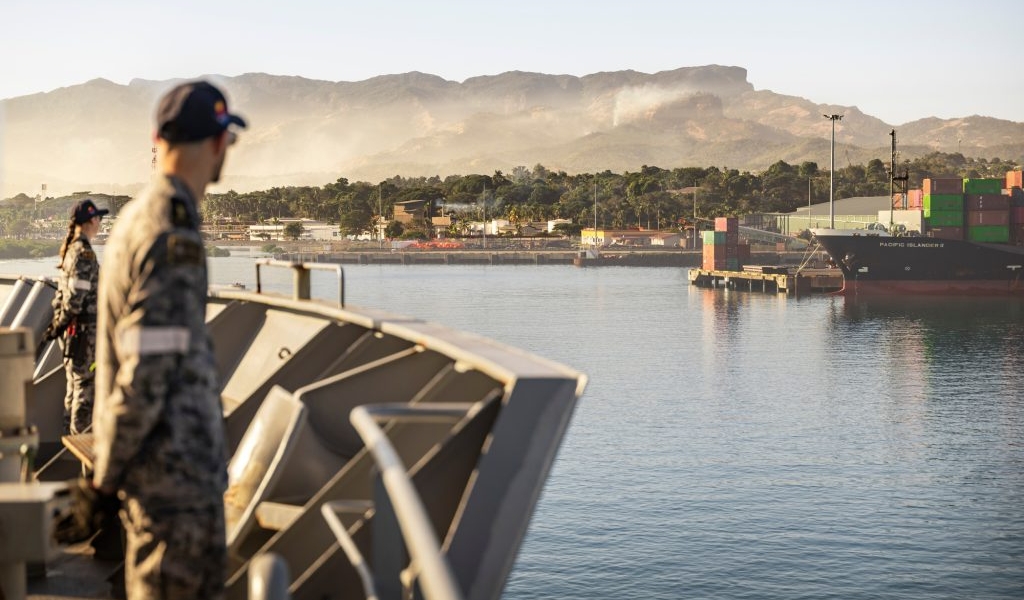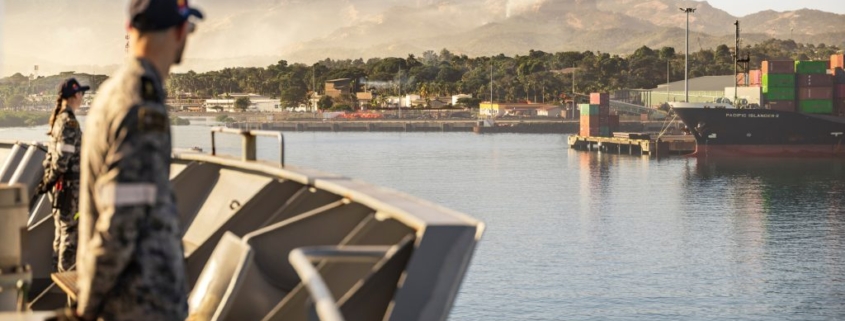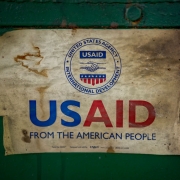Pacific maritime policy could mend fragmentation, increase resilience
The Pacific’s patchwork of national policies and voluntary regional frameworks often falls short of delivering unified, timely and effective responses. A comprehensive and legally binding regional maritime policy could build a more cohesive and resilient maritime governance regime.
The Pacific is renowned for its unique cultures, rich biodiversity and strategic importance. The region faces several maritime challenges that affect its environmental sustainability, economic development and security. These include illegal, unreported and unregulated fishing; climate change; transnational crime; marine pollution and growing strain on resources.
Before the turn of the century, maritime governance in the Pacific was fragmented. Each country managed its ocean spaces independently with little regional coordination. In 1999, recognising the need for a unified approach, Pacific Islands Forum leaders initiated discussions that led to the 2002 endorsement of the Pacific Islands Regional Ocean Policy. The policy was a turning point in regional ocean governance, promoting sustainable ocean management, conservation and cooperation. However, its effectiveness depended on national-level commitment and institutional capacity, leading to varied levels of implementation across the region.
To further strengthen collective ocean efforts, the Framework for a Pacific Oceanscape was introduced in 2010. This initiative aimed to deepen the regional cooperation by emphasising climate resilience, marine resource management and integrated governance approaches. A significant outcome was the establishment of the Office of the Pacific Ocean Commissioner (OPOC), which helps coordinate regional ocean initiatives and amplify Pacific voices in global ocean dialogues.
Despite this progress, the region still lacks a formal, legally binding regional maritime policy. This leaves governance fragmented: many Pacific islands still address maritime threats in isolation, often lacking cohesive strategies to deal with issues such as transnational maritime crime, marine environmental degradation and limited ocean surveillance resources.
Regional leaders have introduced complementary frameworks such as the Pacific Regional One Maritime Framework to improve coordination. But without enforceable policies, frameworks largely function as guidance documents rather than regulatory instruments.
A regional maritime policy would help to coordinate cross-border efforts, align national strategies with regional goals and eliminate jurisdictional gaps that currently enable exploitation and non-compliance. It would set clear legal parameters, operational standards, and mechanisms for joint enforcement, surveillance and information sharing, including maritime domain awareness (MDA) tools. Strengthening state capacities through shared technical expertise, training programs and access to financial resources would also be more achievable under a common regulatory umbrella.
Pacific leaders can draw from the Caribbean Maritime Security Strategy to tailor proven mechanisms to suit Oceania’s unique cultural, ecological and geopolitical context. The Caribbean strategy highlights the importance of harmonised legal frameworks, coordinated enforcement and structured implementation, all of which would significantly strengthen the Pacific’s fragmented maritime governance. The Caribbean’s emphasis on MDA through shared surveillance and real-time data exchange is particularly relevant.
In the Pacific, progress towards enhanced MDA is already taking shape through initiatives such as the Pacific Fusion Centre’s pilot MDA analyst secondee program. Currently in its second year, the program aims to build analytical capacity, promote regional information sharing and support strategic maritime assessments. This initiative represents a practical step towards fulfilling the Boe Declaration’s concept of security that emphasises the need for strengthened regional coordination and resilience.
Moreover, a legally binding regional maritime policy would empower institutions such as the OPOC to move beyond coordination into active policy enforcement and monitoring to align with the Pacific Islands Regional Ocean Policy’s strategic goals, particularly those related to ocean governance, peaceful use of the ocean, and fostering partnerships and regional cooperation. A policy informed by these frameworks would unlock greater negotiating power by improving legitimacy and attract investment in maritime innovation, green shipping and ocean research.
A regional maritime policy could also formalise the inclusion of traditional knowledge systems and local governance practices in maritime planning. Recognising and institutionalising community-based stewardship would foster more inclusive, culturally grounded and effective ocean management outcomes.
Ultimately, a unified policy framework would transform the Pacific’s fragmented approach into a dynamic and collaborative maritime strategy, protecting ocean heritage, enhancing regional peace and security and paving the way for a sustainable blue economy. The responsibility for developing a regional maritime policy would rest with the Pacific Islands Forum, with OPOC playing a central coordinating role. OPOC is well positioned to lead the drafting, consultation and implementation process, in collaboration with the Secretariat of the Pacific Community and other Council of Regional Organisations in the Pacific agencies. The office could facilitate processes that with regional priorities and member state commitments. It would ensure that Pacific island countries are not only stewards of their waters but also strategic leaders in global ocean governance.
This article is part of ASPI’s Pacific Perspectives series, dedicated to championing the assessments and opinions of Pacific island security experts. All opinions presented, including any errors or omissions, are the sole responsibility of the author.



